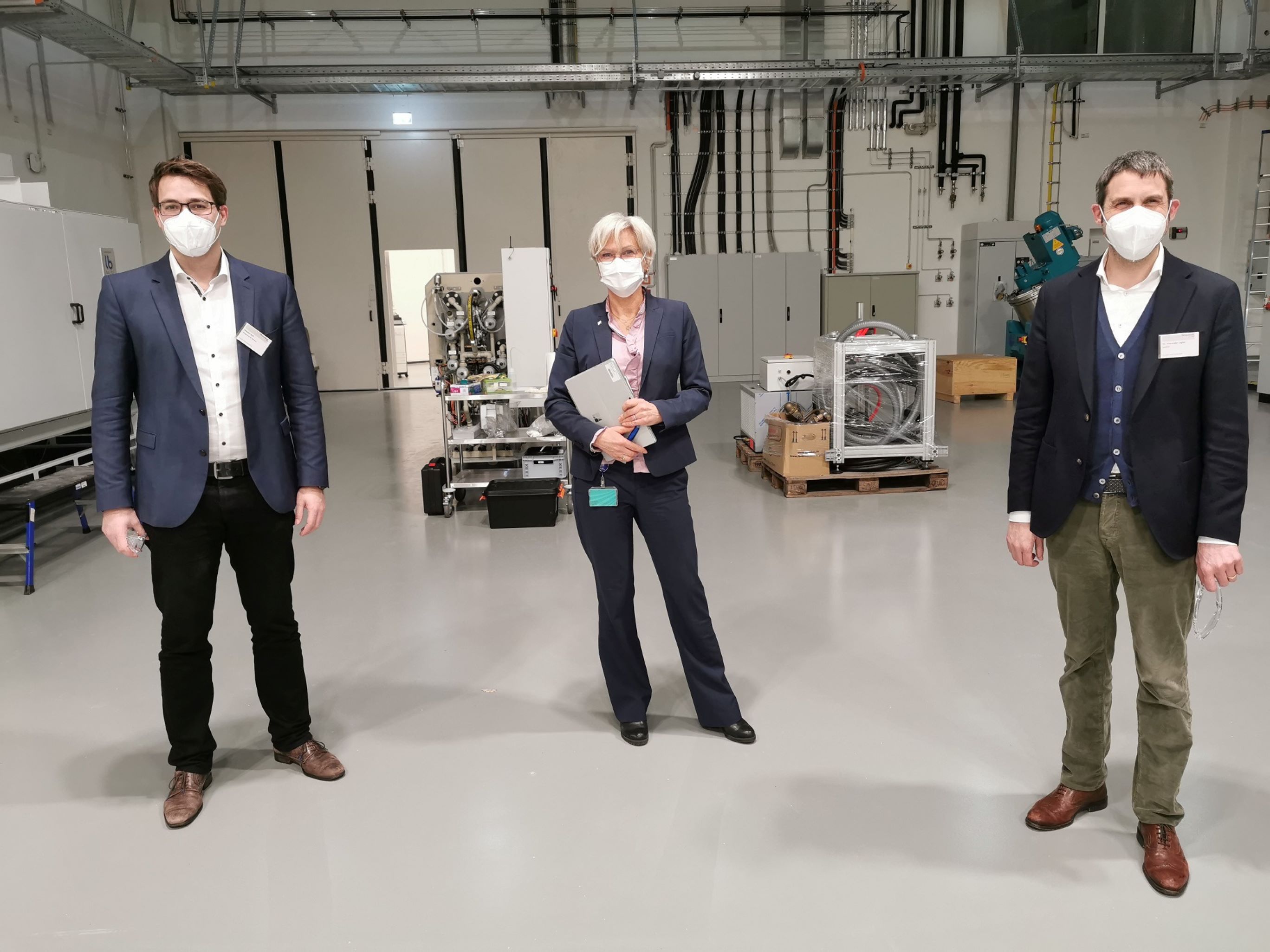Paying a visit to Fraunhofer IWKS in Alzenau: Local politicians inform themselves about current research projects

Even in times of Corona, research at the Fraunhofer Research Institution for Materials Recycling and Resource Strategies IWKS in Alzenau and Hanau does not stand still. Dr. Alexander Legler, District Administrator of Aschaffenburg, and Stephan Noll, First Mayor of Alzenau visited the Bavarian location of Fraunhofer IWKS on Wednesday, February 3, 2021. On this occasion, director Prof. Dr. Anke Weidenkaff gave an overview of current research topics.
These include, above all, the overall theme of digitization of resources. The research focus pursues the idea of making resources traceable in order to avoid dissipation. "If we succeed in determining the materials contained in a product from its manufacture to the end of its life, and also their condition - e.g. their degree of aging - this will make recycling much easier. Digitization can make a significant contribution here, for example with material databases. In addition, new technologies such as machine learning are needed to put this into practice," explained Weidenkaff. Among other things, Fraunhofer IWKS is involved in the "ReCircE" project, which aims to develop data-supported recycling for greater resource efficiency.
In the technical center of the new research facility in Alzenau, which was officially opened in October 2020, work is also being carried out on sustainable hydrogen production. "Our idea is to make hydrogen not just green, but turquoise," says Weidenkaff. "We are working on ways to develop sustainable catalysts with simultaneous recovery of functional carbon. To do this, we are using microwave plasma chemical processes with integrated catalysts to directly convert organic waste into high-value nanocarbons or nanofibres and hydrogen." This pioneering decarbonization approach also enables the use of excess energy from renewable electricity production, as the plasma-assisted technology can be switched on or off in a very short time. These and other innovations - as the visit concluded - will play an even greater role in local politics in the future and will be discussed not least in the environmental and climate council of the city of Alzenau. The aim is to make sustainable hydrogen technologies ready for use as quickly as possible - in Alzenau and beyond.